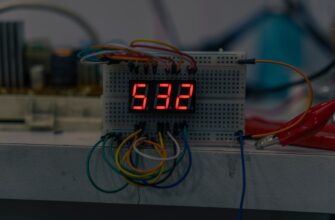India’s New Crypto Tax: What You Need to Know
India’s cryptocurrency landscape has undergone a seismic shift with the introduction of new tax regulations in the 2022 Union Budget. As the government seeks to regulate the booming digital asset market, investors must navigate a complex framework of taxes on crypto transactions. This guide breaks down the latest rules, compliance steps, and strategies to minimize your tax liability.
Understanding India’s New Crypto Tax Structure
The Finance Act 2022 introduced specific provisions for taxing Virtual Digital Assets (VDAs), including cryptocurrencies:
- 30% Tax on Crypto Income: All profits from crypto transfers (sales, trades, or exchanges) face a flat 30% tax, excluding deductions for expenses beyond acquisition costs.
- 1% TDS on Transactions: A 1% tax deducted at source applies to crypto transfers exceeding ₹50,000/day (₹10,000 for specific entities) starting July 1, 2022.
- No Loss Offset: Crypto losses cannot offset gains from other income sources, and losses can’t be carried forward to future years.
- Gift Tax: Receiving crypto as a gift incurs income tax based on fair market value at acquisition.
How the Crypto Tax Impacts Indian Investors
The regulations have reshaped investor behavior:
- Reduced Trading Volume: The 1% TDS has caused a 70-90% drop in trading volumes on Indian exchanges, as per industry reports.
- Compliance Complexity: Tracking cost basis across multiple wallets/exchanges and calculating gains/losses for each transaction requires robust record-keeping.
- Long-Term Shifts: Many investors now prefer holding assets long-term to avoid frequent TDS deductions and high tax rates on short-term trades.
5 Steps to Stay Compliant with Crypto Taxes
- Maintain detailed records of all transactions (dates, values, wallet addresses).
- Calculate taxable income using FIFO method for cost basis.
- Ensure exchanges deduct 1% TDS on applicable transactions.
- File ITR with crypto gains reported under ‘Income from Other Sources’.
- Use crypto tax software like KoinX or CoinTracker for automated calculations.
FAQ: India’s Crypto Tax Rules
Q1: Does the 30% tax apply to NFT transactions?
A: Yes, NFTs are classified as VDAs and subject to the same 30% tax and 1% TDS.
Q2: Can I deduct mining hardware costs from taxable income?
A: No. Section 115BBH prohibits deductions except for original acquisition costs.
Q3: How is TDS handled for peer-to-peer trades?
A: The buyer must deduct 1% TDS and deposit it via Form 26QE within 30 days.
Q4: What happens if I don’t report crypto holdings?
A: Non-compliance may lead to penalties up to 100% of tax owed plus prosecution under Section 276CC.
Q5: Are foreign exchange transactions taxable?
A: Yes, the rules apply regardless of where the exchange is based if the investor is an Indian resident.
Navigating the New Crypto Tax Reality
While India’s crypto tax framework presents challenges, proper planning can help investors remain compliant. Consider holding periods over 3 years to potentially qualify for lower long-term capital gains rates if regulations evolve. Consult a tax professional specializing in crypto to optimize your strategy under current laws.








